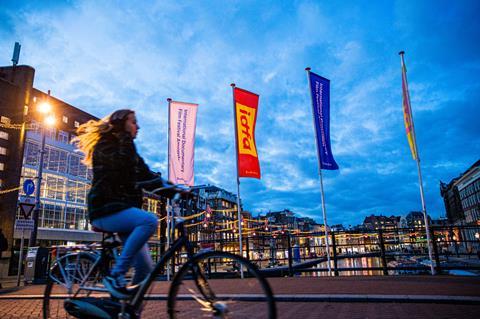
International Documentary Festival Amsterdam (IDFA) has responded to an open letter published by DocuDays UA International Human Rights Documentary Film Festival this week, that criticised the decision by IDFA to programme films “made in Russia and by Russian authors.”
The letter refers to the selection of Russian director Ilya Povolotsky’s Mud, a world premiere in the Envision programme at this year’s festival. The synopsis for the film on the IDFA website had a line which has infuriated Ukrainian industry observers. “It is October 2022, and the war in Ukraine has been underway for seven months.”
The open letter said: “This is a cynical claim from representatives of the country that started a war against Ukraine in 2014 by occupying Crimea, launching military action in eastern regions, organising filtration camps and torture facilities, and killing hundreds of thousands of people in Ukraine in these nearly nine and a half years..’
This synopsis was quickly changed yesterday (November 9) by IDFA but there is no sign that the Festival will be removing Mud from the programme.
IDFA has again clarified its position regarding any Russian presence in Amsterdam. The festival “will not be welcoming any Russian films connected to the Russian government or any of the organisations associated with it, including oligarch funds and the likes. Any films by Russian filmmakers whose political positions are not clear to us, being critical to the Russian war on Ukraine and the Russian discourse of trying to justify it, will not be welcome at IDFA.”
Yulia Kovalenko, programme director of the Docudays UA, acknowledged the strong links between the Ukrainian film industry and IDFA.
“Definitely, IDFA is our friend,” said Kovalenko, who wrote the main part of the letter.
However, she disputed the idea independent Russian films are still being made. “I do not believe that independent filmmakers exist in Russia. Independent filmmaking in Russia is simply impossible,” she said. “It’s not only about having or not having Russian governmental support or oligarchs’ money. It’s simply the question of the need to re-think who is reasonable for this Russian cultural collapse that has allowed the things we see [since the full-scale invasion].”
Her remarks were echoed by producer Denis Ivanov, who also signed the letter.
“Even Russian independent films are trying to go with this imperialistic discourse and spreading the same messages but with the cover of this independent state,” he said. “We understand it, Europeans trying to find a way to collaborate with Russia and find the voices of Russian opposition people. But we don’t see the Russian opposition and we we don’t hear them…we don’t see any big manifestation of Russian people against Putin or against the war.”
”The letter also said: “To continue providing space for representatives of the Russian cultural sector on international platforms means to normalize the unequal circumstances in which filmmakers in Russia and Ukraine live and work today.z In 2022–2023 only, the Ukrainian film community has lost dozens of our colleagues. The number of Ukrainian filmmakers who are currently members of the Armed Forces of Ukraine is difficult to count. Even we, Docudays UA, have colleagues in our team who have had to swap films for weapons since the beginning of the full-scale invasion.
The letter has a list of the Ukrainian film professionals who have died in 2022/2023 “from the Russian war against Ukraine,” a chilling and lengthy list that includes editors, actors, directors, producers and cinematographers.
“We encourage you to reconsider the policy of inviting films made in Russia and by Russians. And we believe that we will find an attentive interlocutor about this complex issue in your team,” the letter, urged the festival.
The letter has been signed by around 50 leading figures from the Ukrainian film industry, several of whom are participating at IDFA this year.
As the letter also acknowledges, IDFA has shown “solidarity and steadfast support” for the Ukrainian film community since the full-scale invasion last year.
Ukraine is well represented in every part of this year’s festival. The event opened last night with the screening of A Picture To Remember, Ukrainian director Olga Chernykh’s first feature-length documentary which was made with IDFA Bertha Fund support. The festival also has the world premiere of Girl Away From Home, co-directed by Alisa Kovalenko, one of the signatories of the letter, and Ukrainian titles in Bests of Fests.
The IDFA Forum project selection includes a number of Ukrainian projects, among them Zoya Laktionova’s Ashes Settling In Layers On The Surface, based on diaries and photographs found in the houses destroyed in Mariupol, Yuliia Hontaruk’s Company Of Steel, about three young veterans who endured the horrors of the war in eastern Ukraine in 2014 and are then thrown back into trauma by the invasion of 2022, and Iryna Tsilyk’s animated autobiographical project, Red Zon.

























No comments yet